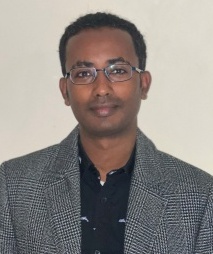|
The Early Career Investigator Committee (ECIC)
Definition of an Early Career InvestigatorCurrent higher degree or current researcher within 10 years from the award of a higher degree (e.g. PhD/Masters). |
|
Mission
The mission of the Early Career Investigator Committee (ECIC), formed in February 2017, is to help shape the future of bone and mineral research in Australia and New Zealand by fostering active engagement of early career investigators within the Australia & New Zealand Bone and Mineral Society (ANZBMS), supporting professional development of early career investigators and facilitating interactions between junior and senior members of all disciplines.
Objectives
- To act in collaboration with the ANZBMS senior committee and foster active engagement of early career investigators within the ANZBMS.
- To promote activities that engage early career investigators and senior members in open dialogue and collaborative initiatives.
- To increase early career investigator awareness of research trends and application of new technologies in bone and mineral research.
- To increase engagement of clinical trainees and improve training in bone and mineral metabolism.
- Involvement in scientific and social programs at the ANZBMS Annual Scientific Meeting.
- To foster science communication and engagement with the public.
- To facilitate translation of scientific findings to industry and government.
MEET THE 2024 COMMITTEE
Shejil Eugenie Cassandra Kara Abadi Angela Micaela Mícheál Kai Martha Gabi Lucy
|
Co-Chairs |
Shejil Kumar, Eugenie MacFarlane |
|
Career Development Representatives |
Abadi Gebre, Micaela Quinn, Gabi Stokes |
|
Clinical Training Representatives |
Shejil Kumar, Lucy Collins, Angela Sheu |
|
Communications Representatives |
Kai Chen, Mícheál Ó Breasail, Eugenie MacFarlane |
|
Events Representatives |
Martha Blanki, Eugenie MacFarlane, Shejil Kumar |
|
ECIC representative to ANZBMS POC |
Cassandra Smith, Kara Anderson (acting) |
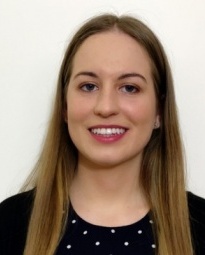 |
Postdoctoral Associate, Bone Research Program, ANZAC Research Institute, The University of Sydney
Dr Eugenie Macfarlane is a passionate postdoctoral researcher and lecturer at the ANZAC Research Institute, The University of Sydney. She received her PhD from The University of Sydney in 2023. Her research focuses on the role of glucocorticoids in bone loss and osteoarthritis during chronic disruption of circadian rhythms (i.e., shift work and jet lag) and is funded by an NHMRC Ideas Grant (2024-2027). In 2024, Eugenie received the Sol Posen Research Award and the Professor Philip Sambrook Award from ANZBMS.
|
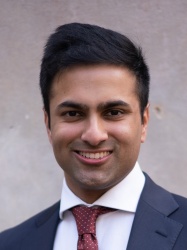 |
Endocrinology Fellow, Royal North Shore Hospital and Westmead Hospital, Sydney NSW
PhD Candidate, University of Sydney, Sydney NSW Dr Shejil Kumar is leading the ROLEX-DUO study; a world-first clinical trial combining resistance exercise with osteoanabolic pharmacotherapy in postmenopausal osteoporosis/osteopenia. He has clinical and research interests in combination and sequential osteoporosis treatments, denosumab rebound and FGF-23 excess disorders. He is passionate about fostering career and professional development opportunities for early career researchers.
|
Dr Cassandra Smith
|
Postdoctoral Research Fellow, Nutrition & Health Innovation Research Institute (NHIRI), Edith Cowan University, Perth WA
Twitter/X: @csmithAEP
Dr Cassandra Smith is a highly passionate clinician-researcher, an Accredited Exercise Physiologist (>10 years’ clinical experience) and Postdoctoral Research Fellow within the Nutrition & Health Innovation Research Institute, Edith Cowan University. Cassandra received her PhD from Victoria University (2022) which gave her a deep understanding on how the skeleton is regulated across the lifespan. Her current research now focusses on understanding why as we age, we lose bone, yet it accumulates in our blood vessels. She has a specific interest in understanding the role of menopause on this relationship, and whether this may potentially explain the sex disparity in cardiovascular disease.
|
-140x200.jpg) |
Associate Research Fellow, Epi-Centre for Healthy Ageing, IMPACT, Deakin University, Geelong, VIC
Twitter/X: @KaraAnderson94
Dr Kara Anderson is an associate research fellow at the Institute for Mental and Physical Health and Clinical Translation (IMPACT), Deakin University. Her research focus has centered around epidemiology of fractures, and in particular has involved the assessment of recent technologies for assessing bone health and fracture risk. She is currently working on the Geelong Osteoporosis Study, a longitudinal cohort study of musculoskeletal health.
|
|
|
Research Fellow, Nutrition & Health Innovation Research Institute (NHIRI), School of Medical and Health Sciences, Edith Cowan University, Perth WA
Twitter/X: @abadi_kahsu21
Dr Abadi Gebre is a Pharmacist and Pharmacologist by training, currently working as a Research Fellow within ECU's Nutrition & Health Innovation Research Institute. His research focuses on disentangling how and why cardiovascular disease leads to falling and fracture using large epidemiological studies and clinical trials, with the ultimate goal of developing better ways to prevent these happening. Abadi's research has been published in leading medical journals such as the British Medical Journal, Lancet and JBMR.
|
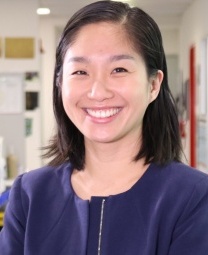 |
|
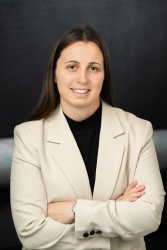 |
PhD Candidate, Bone and Joint Osteoimmunology Laboratory, The University of Adelaide, Adelaide SA
Twitter/X: @MicaelaJQuinn
Micaela is a current PhD candidate within the Bone and Joint Osteoimmunology Laboratory at The University of Adelaide. Her research aims to characterise the effects of targeted breast cancer treatments on bone metabolism and structure, and explores the potential role of the gut microbiome in influencing the skeletal outcomes associated with such treatments.
|
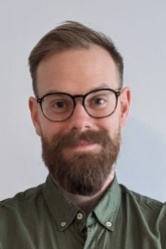 |
Research Fellow, Bone and Muscle Research Group, Monash University, Melbourne VIC
Mícheál completed a PhD investigating whether pregnancy-related bone mineral changes occur in women living in the UK and The Gambia. His subsequent postdoctoral positions have involved exploring the impact of aging on bone in the Global South, and how conditions such as Parkinson's disease impact musculoskeletal health. He current works as a Research Fellow in the Bone and Muscle Research Group at Monash University. His research interests include bone imaging, nutrition and Global Health.
|
 |
Dr Kai Chen School of Biomedical Sciences, The University of Western Australia Dr Kai Chen is an ARC Early Career Fellow leading a research group that leverages advanced molecular imaging technologies to uncover previously unknown physiological and pathological processes in the skeletal system, with the ultimate goal of developing targeted therapeutics. He completed his medical and orthopaedic surgery training in China (2007-2016). Supported by Australian Government International Research Training Program (RTP) Scholarships, he completed his PhD in Bone Biology (2016-2019) with Profs Jiake Xu and Nathan Pavlos at UWA, followed by his postdoctoral training with A/Prof Haibo Jiang (HKU) and Prof Killugudi Swaminatha Iyer (UWA). Dr Chen started his own laboratory in 2023, and his current research is supported by NHMRC Ideas Grant, ARC Fellowship, WA Future Health Research and Innovation Fund, and other funding sources. |
|
Research Officer, St Vincent’s Institute of Medical Research, Melbourne Dr Martha Blank has obtained her Bachelors and Masters degree in Austria before moving to Melbourne in 2018 commencing her PhD with Prof Natalie Sims at the St Vincent’s Institute of Medical Research/University of Melbourne. She is a passionate basic researcher who aims to understand what cellular functions maintain bone material quality and bone strong to find new interventions to prevent fractures. Martha finished her PhD in 2022 and continues to work in Prof Sims’ lab as a Research Officer. Her current work aims to understand how osteoblasts and osteocytes control mineral and collagen accrual in bone tissue and how this can be used to improve bone strength.
|
 |
Endocrinologist and PhD Candidate, Monash Health, Hudson Institute of Medicine and Monash University Dr Gabrielle Stokes is an endocrinologist at Monash Health and a PhD candidate under A/Prof Frances Milat with the Bone and Muscle Research Group at Monash University. Her research focuses on the assessment and management of osteoporosis following a stroke, focusing on clinical interventions to prevent fractures and disability.
|
|
PhD Candidate, Monash University, Victoria, Australia Consultant Endocrinologist, Monash, Western and Northern Health, Victoria, Australia Lucy is a Consultant Endocrinologist at a number of public hospitals in Melbourne (Monash Health, Western Health, Northern Health) with a strong focus on both adult and paediatric care, particularly in managing rare bone disorders. During her training years, Lucy has been fortunate to gain experience in both paediatric and adult endocrinology. She is also a PhD Candidate at Monash University. Her research focuses on the genetic variants associated with atypical femur fractures.
|

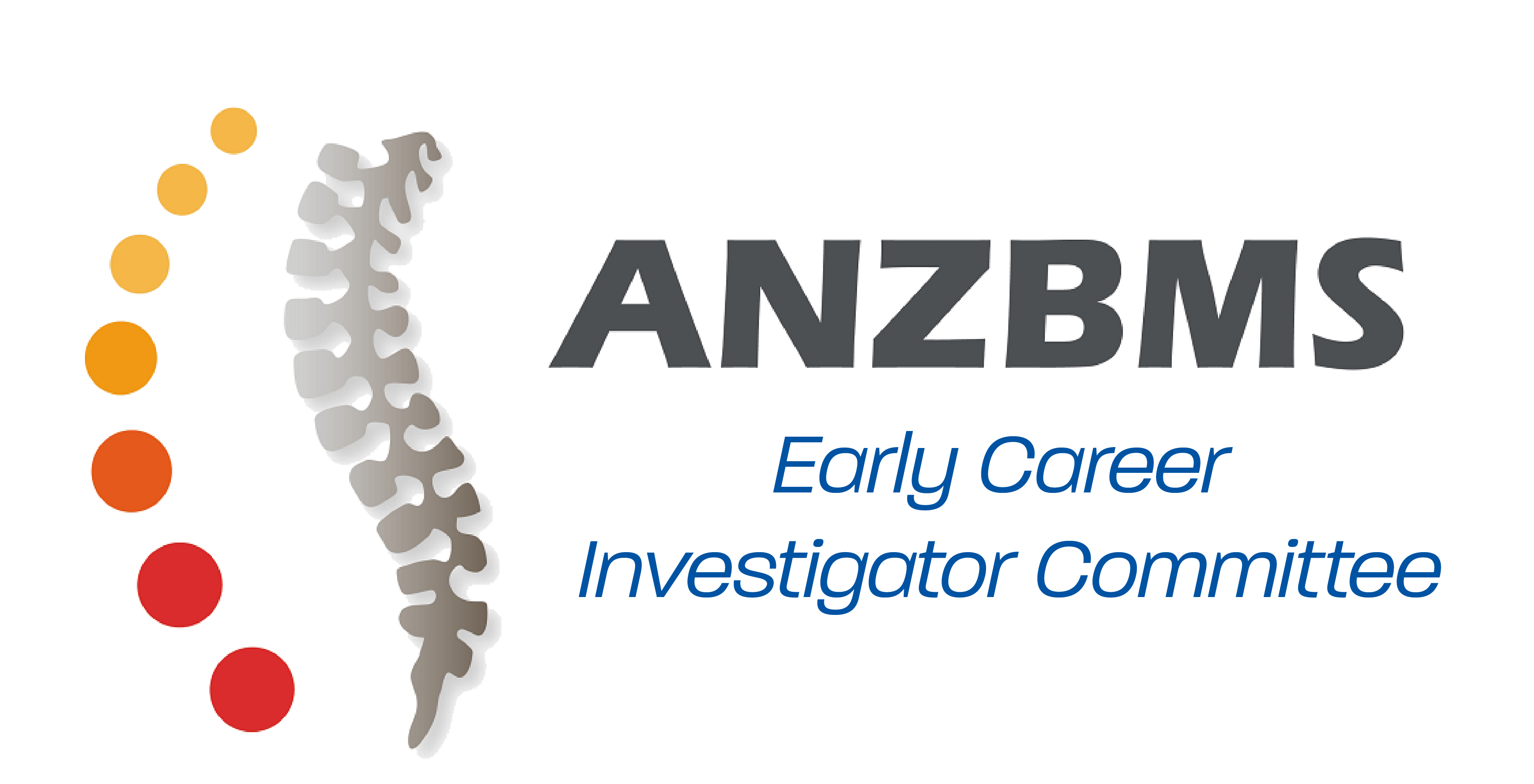





.jpg)
